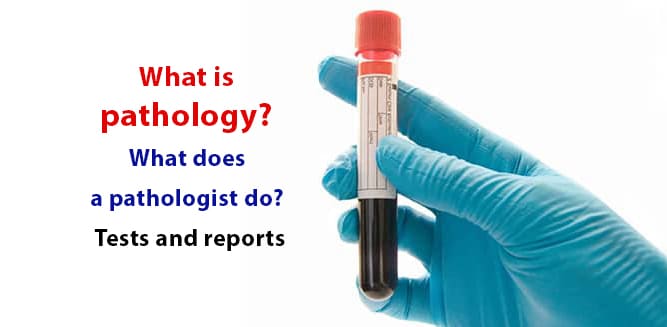
The pathologist in turn relies on a modern pathology laboratory that offers a wide spectrum of technologies that assist in extracting detailed information from the cells and the tissues.

The pathologist must produce accurate and reliable diagnoses quickly in response to his/her colleagues' requests. At the heart of pathology is the care of the patient. Modern medicine relies on the combined medical and scientific skills of pathologists to assist in the investigation and management of a patient's illness. In North America and the United Kingdom medical specialists that contribute to the diagnosis of disease by measuring substances such as proteins and salts in blood, sputum, bone marrow, and urine are called chemical pathologists. In addition pathologists perform what can be called ‘the last medical consultation’, the post-mortem examination or autopsy. In Europe pathology is synonymous with histo-and cytopathology, that part of laboratory medicine that uses tissues (histopathology) and cells (cytopathology) to make diagnoses. Pathology is considered part of laboratory medicine, a group of medical specialties that study body fluids, such as blood and urine, and cells or tissues to diagnose specific diseases and thus assist medical practitioners in identifying the cause and severity of disease, and in monitoring treatment.

Pathology is a medical specialty studying disease processes, how they develop and what they are caused by and the application of this knowledge to the diagnosis of disease. Popularly, pathology is called ‘the science behind the cure’. In this context, the meaning of the term “disease” is ‘any deviation from normal’, slight or serious. Pathology is about understanding disease.


 0 kommentar(er)
0 kommentar(er)
